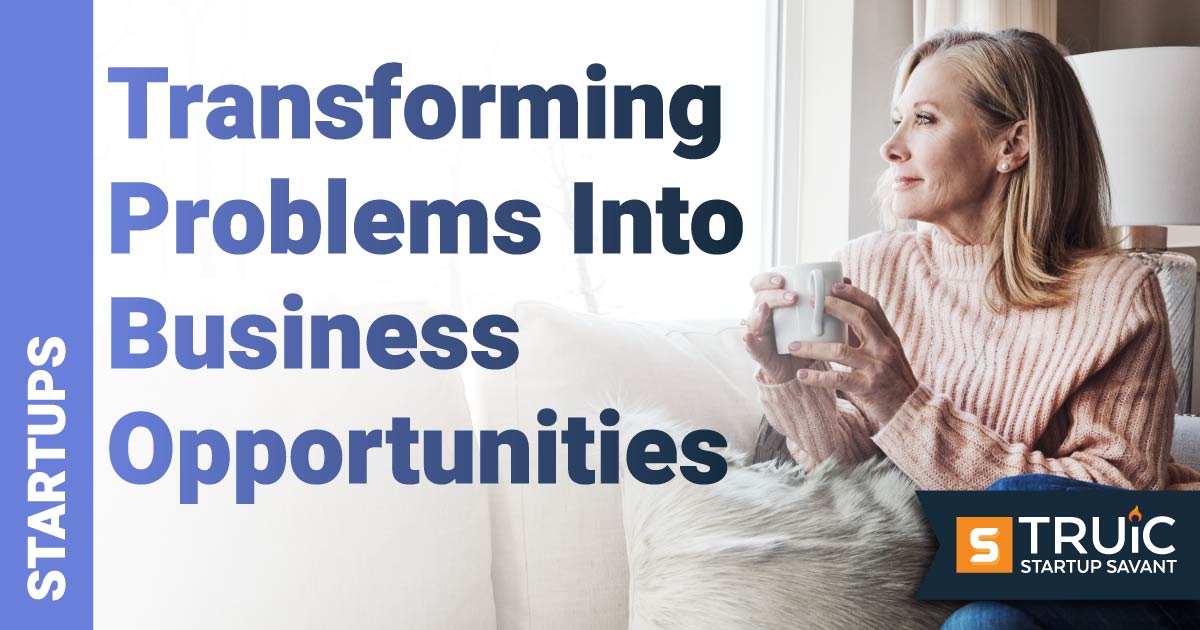The Best Business Idea Might Just Be a Problem You've Solved for Yourself

Last Updated: By Nagabhushanam Peddi
Have you ever found yourself in a situation and thought, "There has to be a better way"? If so, you're onto something. That sense of frustration isn't just a fleeting emotion; it's the seed of a potentially successful business idea. In fact, many great businesses have sprouted from entrepreneurs who have had to solve a problem for themselves.
When you've faced the problem first-hand, you gain several significant advantages that can be the foundation for a thriving enterprise.
Why Personal Problems Are Potential Business Opportunities
When you tackle an issue that has plagued you personally, you inadvertently tap into a potential market of others who are facing the same challenge. Not only does this give you an immediate understanding of the problem, but it also offers several advantages when transitioning to entrepreneurship.
We can see this illustrated through various real-world examples of founders who turned their personal problems into successful business ventures:
1. Deep Understanding of the Problem and Solution
Consider the story of Sara Blakely, the self-made billionaire and founder of Spanx. Sara encountered a wardrobe dilemma: the absence of the right undergarment to wear under white slacks. Rather than just complain, she cut the feet off her pantyhose, and an idea was born. But the real genius lies in the months she spent afterward tweaking, testing, and refining her product.
Why does this deep understanding matter? Because when you've lived the problem, your solutions undergo real-world testing long before a traditional focus group ever sees them. You become the focus group, providing an irreplaceable level of insight that market research often can't capture.
2. Clear Insight into the Target Market
Brian Chesky and Joe Gebbia, founders of Airbnb, had trouble making ends meet and needed a way to pay rent for their San Francisco loft. During a design conference in their city, they saw an opportunity. They quickly put together a simple website to rent out their living room floor. What followed was an influx of emails from people around the world wanting to know when they would expand this service to other cities.
From this demand, Airbnb was born, initially targeting local events and conferences where traditional lodging options were either too expensive or unavailable. Their personal struggle wasn't just solved; it was monetized into a solution that benefits millions today.
3. Authenticity and Credibility
When you've personally lived through the problem you're solving, your message carries a different weight; it resonates on another level. Ben Francis, the founder of Gymshark, embodies this. Passionate about both fitness and engineering, he was disappointed with the gym apparel options available. What did he do? He started designing and manufacturing his own gym clothes right in his mom's garage.
Francis wasn't just an entrepreneur; he was his own customer. This gave him an authentic voice in the market, establishing instant credibility. Consumers didn't see him as another faceless brand but as a living testament to his product's value.
4. Direct Feedback and Iteration
Drew Houston, the founder of Dropbox, was a student at MIT when he forgot his USB flash drive during a trip. Recognizing the inconvenience and inefficiency of traditional storage methods, he came up with Dropbox as a solution. Every time he faced a challenge with his product, he was essentially receiving direct feedback from his own experience, allowing him to refine and perfect his service.
5. Cost Savings on Initial Market Research
Duolingo's founder, Luis von Ahn, recognized the barriers in language learning. With personal knowledge of the expensive and often ineffective traditional language courses, he set out to create a free, gamified app. His own understanding meant that initial costs associated with market research were minimized. He knew the problems learners faced and was determined to fix them, leading to Duolingo's meteoric rise as a go-to language learning tool.
6. Bootstrap-able Start
Mailchimp's story stands as a testament to this point. Founded by Ben Chestnut and Dan Kurzius, they started as a side project offering email marketing services for their clients. Both founders had previously faced the challenge of effective email marketing in their careers. Since they knew the intricacies of the problem firsthand, they were able to bootstrap their solution without external investment for several years, leading to a strong foundation for the business.
7. Supply Chain Efficiency
Directly experiencing a problem gives entrepreneurs insights into the supply chain challenges and solutions. Warby Parker, co-founded by Neil Blumenthal, Andrew Hunt, David Gilboa, and Jeffrey Raider, identified the high prices of prescription glasses as a pain point for many. They streamlined the supply chain by designing glasses in-house and engaging with customers directly, eliminating the middlemen and the associated markups.
8. Seamless Integration with Existing Tools
Stewart Butterfield, the co-founder of Slack, initially developed it as an internal communication tool for his gaming company, Tiny Speck. Recognizing its efficiency and potential, he pivoted to make Slack available for other businesses. Since he and his team were already using it, they had firsthand knowledge of how to integrate it seamlessly with other existing tools, setting Slack apart in the market.
9. Optimal Product Features and Usability
When you're solving your own problem, you have a better sense of which features are essential and which ones are just nice to have. Basecamp, co-founded by Jason Fried and David Heinemeier Hansson, was developed as a project management tool for their web application company. Their firsthand experience allowed them to prioritize features based on actual needs rather than assumptions.
10. Deeper Connections
Nick Woodman, the founder of GoPro, was an avid surfer and wanted a way to capture his adventures. Recognizing that there was no easy way to film yourself while engaged in action sports, he developed the first GoPro camera. His personal connection to the problem not only led to a solution but also created a deep connection with his early brand ambassadors - fellow adventure enthusiasts.
As you can see, personal problems can be goldmines of business opportunities. If an issue bothers you, it's likely that it bothers others as well. Tapping into this shared pain point, understanding it deeply, and providing a solution can lead to a successful entrepreneurial journey.
Don’t Just Go Through It; Grow Through It
The next time you find yourself wrestling with a problem, don't just solve it—monetize it. The issues you face could very well be shared by millions of others, setting the stage for your next big business venture. Remember, life's personal struggles aren't just obstacles to overcome; they're often untapped goldmines ripe for innovation.
So, the next time you find yourself frustrated, think bigger. That frustration could just be the inception of your best business idea yet.


